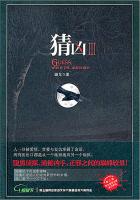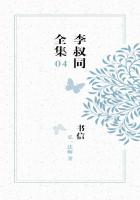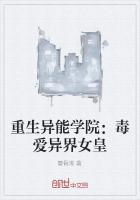And yet as I hastily review the decade in Chicago which followed this one given over to discussion, the actual attainment of these early hopes, so far as they have been realized at all, seem to have come from men of affairs rather than from those given to speculation. Was the whole decade of discussion an illustration of that striking fact which has been likened to the changing of swords in Hamlet; that the abstract minds at length yield to the inevitable or at least grow less ardent in their propaganda, while the concrete minds, dealing constantly with daily affairs, in the end demonstrate the reality of abstract notions?
I remember when Frederick Harrison visited Hull-House that I was much disappointed to find that the Positivists had not made their ardor for humanity a more potent factor in the English social movement, as I was surprised during a visit from John Morley to find that he, representing perhaps the type of man whom political life seemed to have pulled away from the ideals of his youth, had yet been such a champion of democracy in the full tide of reaction. My observations were much too superficial to be of value and certainly both men were well grounded in philosophy and theory of social reform and had long before carefully formulated their principles, as the new English Labor Party, which is destined to break up the reactionary period, is now being created by another set of theorists. There were certainly moments during the heated discussions of this decade when nothing seemed so important as right theory: this was borne in upon me one brilliant evening at Hull-House when Benjamin Kidd, author of the much-read "Social Evolution," was pitted against Victor Berger of Milwaukee, even then considered a rising man in the Socialist Party.
At any rate the residents of Hull-House discovered that while their first impact with city poverty allied them to groups given over to discussion of social theories, their sober efforts to heal neighborhood ills allied them to general public movements which were without challenging creeds. But while we discovered that we most easily secured the smallest of much-needed improvements by attaching our efforts to those of organized bodies, nevertheless these very organizations would have been impossible, had not the public conscience been aroused and the community sensibility quickened by these same ardent theorists.
As I review these very first impressions of the workers in unskilled industries, living in a depressed quarter of the city, I realize how easy it was for us to see exceptional cases of hardship as typical of the average lot, and yet, in spite of alleviating philanthropy and labor legislation, the indictment of Tolstoy applied to Moscow thirty years ago still fits every American city: "Wherever we may live, if we draw a circle around us of a hundred thousand, or a thousand, or even of ten miles circumference, and look at the lives of those men and women who are inside our circle, we shall find half-starved children, old people, pregnant women, sick and weak persons, working beyond their strength, who have neither food nor rest enough to support them, and who, for this reason, die before their time; we shall see others, full grown, who are injured and needlessly killed by dangerous and hurtful tasks."
As the American city is awakening to self-consciousness, it slowly perceives the civic significance of these industrial conditions, and perhaps Chicago has been foremost in the effort to connect the unregulated overgrowth of the huge centers of population, with the astonishingly rapid development of industrial enterprises; quite as Chicago was foremost to carry on the preliminary discussion through which a basis was laid for likemindedness and the coordination of diverse wills. I remember an astute English visitor, who had been a guest in a score of American cities, observed that it was hard to understand the local pride he constantly encountered; for in spite of the boasting on the part of leading citizens in the western, eastern, and southern towns, all American cities seemed to him essentially alike and all equally the results of an industry totally unregulated by well-considered legislation.
I am inclined to think that perhaps all this general discussion was inevitable in connection with the early Settlements, as they in turn were the inevitable result of theories of social reform, which in their full enthusiasm reached America by way of England, only in the last decade of the century. There must have been tough fiber somewhere; for, although the residents of Hull-House were often baffled by the radicalism within the Social Science Club and harassed by the criticism from outside, we still continued to believe that such discussion should be carried on, for if the Settlement seeks its expression through social activity, it must learn the difference between mere social unrest and spiritual impulse.
The group of Hull-House residents, which by the end of the decade comprised twenty-five, differed widely in social beliefs, from the girl direct from the country who looked upon all social unrest as mere anarchy, to the resident, who had become a socialist when a student in Zurich, and who had long before translated from the German Engel's "Conditions of the Working Class in England," although at this time she had been read out of the Socialist Party because the Russian and German Impossibilists suspected her fluent English, as she always lightly explained. Although thus diversified in social beliefs, the residents became solidly united through our mutual experience in an industrial quarter, and we became not only convinced of the need for social control and protective legislation but also of the value of this preliminary argument.
This decade of discussion between 1890 and 1900 already seems remote from the spirit of Chicago of to-day. So far as I have been able to reproduce this earlier period, it must reflect the essential provisionality of everything; "the perpetual moving on to something future which shall supersede the present," that paramount impression of life itself, which affords us at one and the same time, ground for despair and for endless and varied anticipation.















